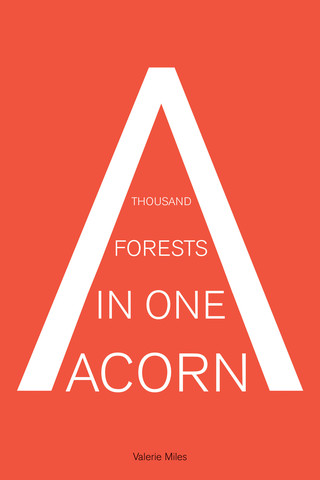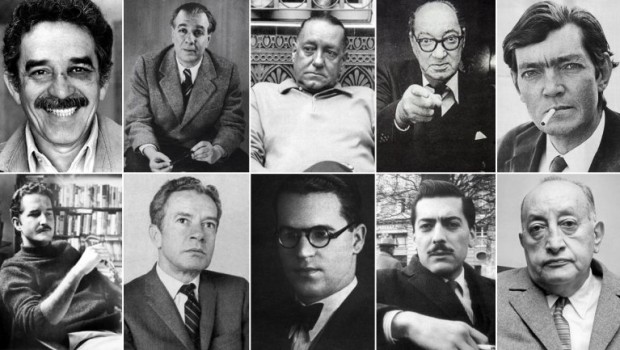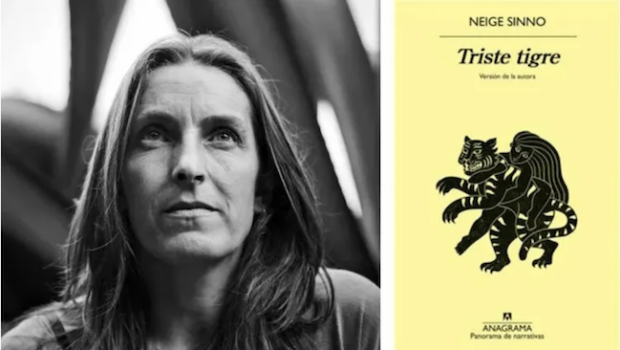A Thousand Forests in One Acorn
David D. Medina
A Thousand Forests in One Acorn:
An Anthology of Spanish-Language Fiction
Edited by Valerie Miles
The seed for A Thousand Forests in One Acorn: An Anthology of Spanish-Language Fiction was planted in the editor, Valerie Miles, many years ago when she came across a book that had compiled the writings of influential American writers. The anthology was different in that it asked the authors to select one unit that represented their best creative moment.
Miles borrowed the idea and created a Spanish version of the anthology, selecting some of the most important writers from Spain and Latin America of the twentieth century. Of the many she invited to participate, 28 accepted the offer, including such canonical authors as Carlos Fuentes and Mario Vargas Llosa, as well as lesser-known writers who are nevertheless worth reading, especially some of the younger ones who offer fresh and innovative creations.
The title of the book is taken from a phrase by Ralph Waldo Emerson, who believed that all of history could be found in one person—that there is one mind common to all human beings. Miles seeks to find that common ground by asking the writers to talk about themselves and their pieces and explain who and what influenced their art, and to expound on what makes their work different.
What she found was that many of the writers were heavily influenced by William Faulkner. Writes Mario Vargas Llosa: “Without the influence of Faulkner, Latin America would not have had the modern novel.” The political oppression of the Franco regime and the violence in Central America has also had an effect on many of these writers, especially those who flocked to Paris to flee martial law and to seek inspiration and a room of one’s own to write.
As in most anthologies, the works vary in quality; however, most of the pieces in this collection distinguish themselves for their efforts to create something new. Take for example, the Mexican writer Sergio Pitol, who in his piece, “By Night in Bukhara,” regales us with a story in which two friends living in Warsaw want to get rid of a detestable woman and invent a story about an enchanted city in Central Asia. They tell her that a young pianist went to visit the town and was seduced and tortured by an array of exotic characters. Enthralled by the tale, the woman ventures to the city and suffers the same fate as the pianist. And thus the imaginary tale that was told to her becomes real in this story within a story.
Jose De La Colina, another Mexican author, creates musical prose in “The Final Music of the Titanic.” He writes a sentence that flows for three and half pages, recounting how a group of musicians in an effort to comfort the passengers on the legendary ship play without stopping until they bravely sink with the ship.
Argentine writer Elvio Gandolfo starts his short story with: “A blue whale, also known as a blue rorqual, materializes over the city of Rosario, at an altitude of 452 meters, in the cool blue sky of spring day.” The surreal story goes on to describe how the huge whale plummets onto the city, disrupting the fabric of reality, if only for a brief time, before another whale appears over another city.
Javier Marias, from Spain, uses narrative techniques that are inventive and delightful to read. In a section from the novel Tomorrow in the Battle Think of Me, the male narrator finds his girlfriend is about to die. In a seamless slight of hand, the last thoughts of the dying woman are voiced through the narrator, he who is imagining what she must be thinking. In another piece, “When I Was Mortal,” the narrator is an all-knowing ghost, who tells the story about why he was killed and who did it—something he didn’t know when he was mortal.
The writers in this anthology represent some of the best that the Spanish-speaking world has to offer today. The book is not only entertaining but also informative, as it brings together writers that are making a name for themselves and should be explored and cherished. Miles spent four years putting the book together, and we must thank her for showing us that Spanish-language writers are as productive and creative as ever.
Posted: October 18, 2014 at 5:19 am










